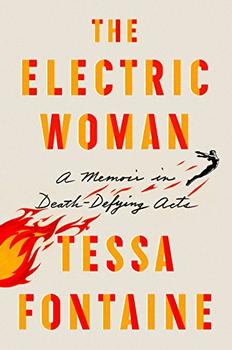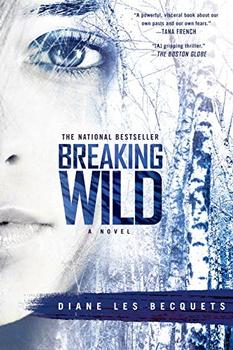Summary | Excerpt | Reviews | Beyond the book | Read-Alikes | Genres & Themes | Author Bio

Field Notes from a Wilderness Lookout
by Philip ConnorsFire Season is an anatomy of solitude, a paean to a wild American landscape, a history of wildfires and those who watch them, a celebration of adventure, and a demonstration of the connection between looking hard, thinking deeply and writing brilliantly.
Philip Connors's precise narrative describes the New Mexican fire season (spring into summer) of 2009 and his experiences as a lookout during that time. His writing is tough-minded and compelling, and in it he includes political, historical, and geological surveys in addition to an overview of the cycles of destruction and rebirth that distinguish New Mexico's Gila Wilderness (see "Beyond the Book"). Connors gives an account of the literary greats who were also lookouts, such as Norman Maclean and Jack Kerouac, and delivers a powerful rendering of his time spent in nature: in boredom and exhilaration, storm and silence, moonlight, lightning, and firelight. Anyone who craves great writing and cares about preserving the American wilderness or establishing a connection to the natural world will finish Fire Season enlivened and moved.
Despite Connors's digressions from his field notes to topics such as geology, history, anthropology, and land and fire management (which is truly fascinating), he remains faithful to the evanescent present he experiences from his tiny tower room suspended above the earth and his living quarters below. While his day job entails "scanning the far horizon" of "a forest that burns and a desert that dances - 20,000 square miles of cruel and magnificent country," for even the thinnest feather of smoke in the distance, Connors also applies his keen sense of observation to more philosophical musings. For example, he writes of a solitary game of Frisbee golf:
...the toss of a Frisbee is a bit like the writing of a sentence. Each must move along a certain line to keep the game going forward. Each can go astray, spin out of control. At times what is called for is a long, unspooling line, a toss that slices and circles and hovers in the wind, feinting one way before turning back in another, just as a sentence can move in spirals around a central idea, curving ever closer to the center, the heart, the rock. Other times you need a direct approach...
There is so much that is good, beautiful, and important among Connors's sentences; he gives sharp, fresh descriptions of nature (bears, hummingbirds, moths, fish, and flowers), and, in particular, a heartbreaking story of an abandoned fawn he failed to save. He spouts bits of quirky information - for example, Jack Kerouac liked Beechnut gum and Hi Ho Crackers, and fire watchers give names to the fires they spot - and Connors presents autobiographical details about his own life, his wife, his work before fire watching, and his brother's suicide. But the center of the book, its beauties and rewards, come from Connors's focused observation, unbroken solitude and thought:
Following the drift and weave of my own thoughts is no simple task... Like any refined art it begs practice, and I am for the moment out of step... The wind doesn't help. Two days are all it takes for the noise to insinuate itself in my cranium, a fluctuation symphony of sound: whisper and whistle, moan and roar. It gives a texture to the days, gaining power through the afternoon, barreling through the night, easing briefly at dawn. One morning it ceases altogether, and the sudden quiet knocks me out of balance, forces me to recalibrate the terms of the truce I've made with solitude.
He spends his days off following in the footsteps of visionary and wildlife conservationist Aldo Leopold - both literally and figuratively. Leopold was in the forest service during its early years, stationed at the Gila National Forest as well, and was the first to propose that the area be preserved, i.e. no machines, no cars. Connors explores Leopold's hiking trails and ponders his evolution in thinking about wilderness conservation. And though he passes his evenings on moonlit hikes with his dog Alice, and enjoys visits with his wife, Connors's writing seems most firmly and powerfully authentic when he's between earth and sky, alone and looking:
"The sun bores through the glass windows of the tower, solar heating in its essence. The world becomes the evolution of light. The most imperceptible shift of color in the sky before dawn, the turn from midnight blue to sapphire. The way the mountains move through shakes of green and blue and on through purple and black in the evening. The dark blue reefs of cloud in a backlit sky at twilight. A crimson lip at the edge of the world where the sun has gone, like a smear of blood, reappearing at dawn...
In this way, Fire Season will make readers wonder if they'd feel the same way too, if only they had the chance.
![]() This review was originally published in The BookBrowse Review in April 2011, and has been updated for the
March 2012 edition.
Click here to go to this issue.
This review was originally published in The BookBrowse Review in April 2011, and has been updated for the
March 2012 edition.
Click here to go to this issue.

If you liked Fire Season, try these:

by Tessa Fontaine
Published 2019
Tessa Fontaine's astonishing memoir of pushing past fear, The Electric Woman, follows the author on a life-affirming journey of loss and self-discovery - through her time on the road with the last traveling American sideshow and her relationship with an adventurous, spirited mother.

by Diane Les Becquets
Published 2017
In captivating prose, Diane Les Becquets tells the story of one woman missing in the Colorado wilderness and another bent on discovering the missing woman's whereabouts, in an unforgettably moving and thrilling literary debut.
I always find it more difficult to say the things I mean than the things I don't.
Click Here to find out who said this, as well as discovering other famous literary quotes!
Your guide toexceptional books
BookBrowse seeks out and recommends the best in contemporary fiction and nonfiction—books that not only engage and entertain but also deepen our understanding of ourselves and the world around us.